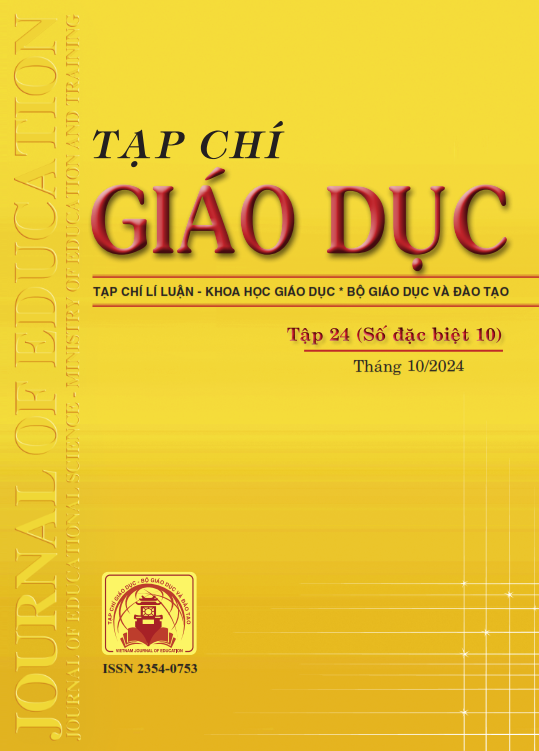Phương pháp vấn đáp phát hiện: Từ Socrates đến Polya
Tóm tắt
Teaching discovery inquiry is an art that has existed since ancient times, and has been “normalized” into a teaching technique (the technique of using questions and feedback in teaching). However, in reality, many mathematics pedagogy students do not have a basic understanding of the theoretical basis, so they cannot master the technique of using questions and feedback. This study has provided some theoretical bases showing that discovery inquiry is a teaching method with a long history, from Socrates to Polya, widely used and effective in teaching mathematics, and can be applied in teaching all four typical situations: teaching concepts, teaching theorems, teaching rules and teaching solving mathematical exercises. The discovery inquiry method should be included as part of the Mathematics Teaching Methodology to equip students of Pedagogy.
Tài liệu tham khảo
Bagnato, R. A. (1973). Teaching college Mathematics by Question-and-Answer. Educational Studies in Mathematics, 5, 185-192.
Boghossian, P. (2006). Socratic Pedagogy, Critical Thinhking, and Inmate Education. The Journal of Correctional Education, 57(1), 42-63.
Dolmans, D. H. H. M., Grave, W. D., & Wolfhagen, I. (2005). Problem-based learning: future challenges for educational practice and research. Med Educ, 39, 732-741.
Đặng Thành Hưng (2005). Tương tác và hoạt động thầy trò trên lớp học. NXB Đại học Quốc gia Hà Nội.
Đặng Văn Đức, Nguyễn Thu Hằng (1998). Phương pháp dạy học theo hướng tích cực. NXB Giáo dục.
Freudenthal, H. (1991). Revisiting Mathematics Education: China Lectures. Springer.
Marino, P. (2005). Dialogue in Mathematics: Is It Important? Mathematics in School, 34(2), 26-28.
Nguyễn Bá Kim (2017). Phương pháp dạy học môn Toán. NXB Đại học Sư phạm.
Polya, G. (1963). On learning, Teaching and Learning teaching. The American Mathematical Monthly, 70, 605-619.
Polya, G. (2009). Giải bài toán như thế nào. NXB Giáo dục.
Rényi, A. (1967). Dialogues on Mathematics. Holden-Day, San Francisco.
Shin-Yun, W., Jer-Chia, T., Horn-Che, C., Chung-Sheng, L., & Hui-Ju, L. (2008). Socrates, Problem-Based Learning and Critical Thinking, A Philosophic Point of View. Kaohsiung J Med Sci, 24(3), 6-13.
Trần Văn Tuân (2022). Vận dụng phương pháp phát hiện và giải quyết vấn đề trong dạy học tác phẩm văn học cho sinh viên ngành Giáo dục tiểu học, Trường Đại học Trà Vinh. Tạp chí Khoa học Giáo dục Việt Nam, 18(11), 68-73.
Wilberding, E. (2014). Teach Like Socrates: Guiding Socratic Dialogues & Discussions in the Classroom. Prufrock Press.
Đã Xuất bản
Cách trích dẫn
Số
Chuyên mục
Giấy phép

Tác phẩm này được cấp phép theo Ghi nhận tác giả của Creative Commons Giấy phép quốc tế 4.0 .












